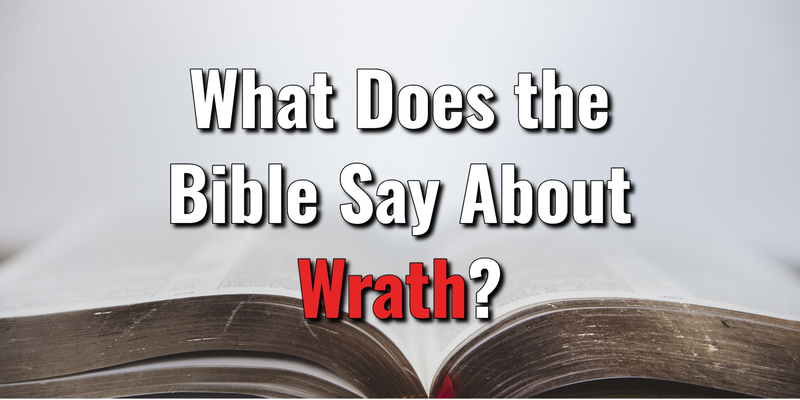Lord’s Library editors answer the question “What does the Bible say about wrath?” with specific Bible references.
Have you ever asked yourself the question “What does the Bible say about wrath?” If you have, you’re definitely not alone! And since the Bible helps Christians form a foundational understanding of important topics, it’s imperative that one know how Scripture describes wrath in different contexts. The Webster’s 1828 Dictionary defines wrath as “The effects of anger. The just punishment of an offense or crime.”
Now armed with a basic definition of wrath, Lord’s Library editors thought it would be a helpful exercise to provide Biblical context. As a result, we compiled this short resource which captures all notable mentions of the word wrath, as well as its other forms. If you’ve been wondering what the King James Bible says about wrath, scroll on for additional detail.
Note: If you want to know what the Bible says about wrath and 206 other important topics (to be exact), our editors recommend Spencer Smith’s Doctrine Matters: Bible Topic Guidebook.
What Does the Bible Say About Wrath?
Romans 1:18
“For the wrath of God is revealed from heaven against all ungodliness and unrighteousness of men, who hold the truth in unrighteousness;”
Romans 5:9
“Much more then, being now justified by his blood, we shall be saved from wrath through him.”
Romans 12:19
“Dearly beloved, avenge not yourselves, but rather give place unto wrath: for it is written, Vengeance is mine; I will repay, saith the Lord.”
Galatians 5:19-21
“Now the works of the flesh are manifest, which are these; Adultery, fornication, uncleanness, lasciviousness, Idolatry, witchcraft, hatred, variance, emulations, wrath, strife, seditions, heresies, Envyings, murders, drunkenness, revellings, and such like: of the which I tell you before, as I have also told you in time past, that they which do such things shall not inherit the kingdom of God.”
Ephesians 4:26
“Be ye angry, and sin not: let not the sun go down upon your wrath:”
Ephesians 4:31
“Let all bitterness, and wrath, and anger, and clamour, and evil speaking, be put away from you, with all malice:”
Ephesians 6:4
“And, ye fathers, provoke not your children to wrath: but bring them up in the nurture and admonition of the Lord.”
Colossians 3:8
“But now ye also put off all these; anger, wrath, malice, blasphemy, filthy communication out of your mouth.”
1 Thessalonians 5:9
“For God hath not appointed us to wrath, but to obtain salvation by our Lord Jesus Christ,”
1 Timothy 2:8
“I will therefore that men pray every where, lifting up holy hands, without wrath and doubting.”
Proverbs 15:1
“A soft answer turneth away wrath: but grievous words stir up anger.”
Lord's Library participates in affiliate programs. We may make a small commission from products purchased through this resource.
- What Does the Bible Say About Achievements? With Key Scriptures - April 11, 2025
- What does the Bible Say About Abortion? With Key Scriptures - April 11, 2025
- Prosperity Gospel Meaning in the Scriptures: Is it Biblical? - April 7, 2025














